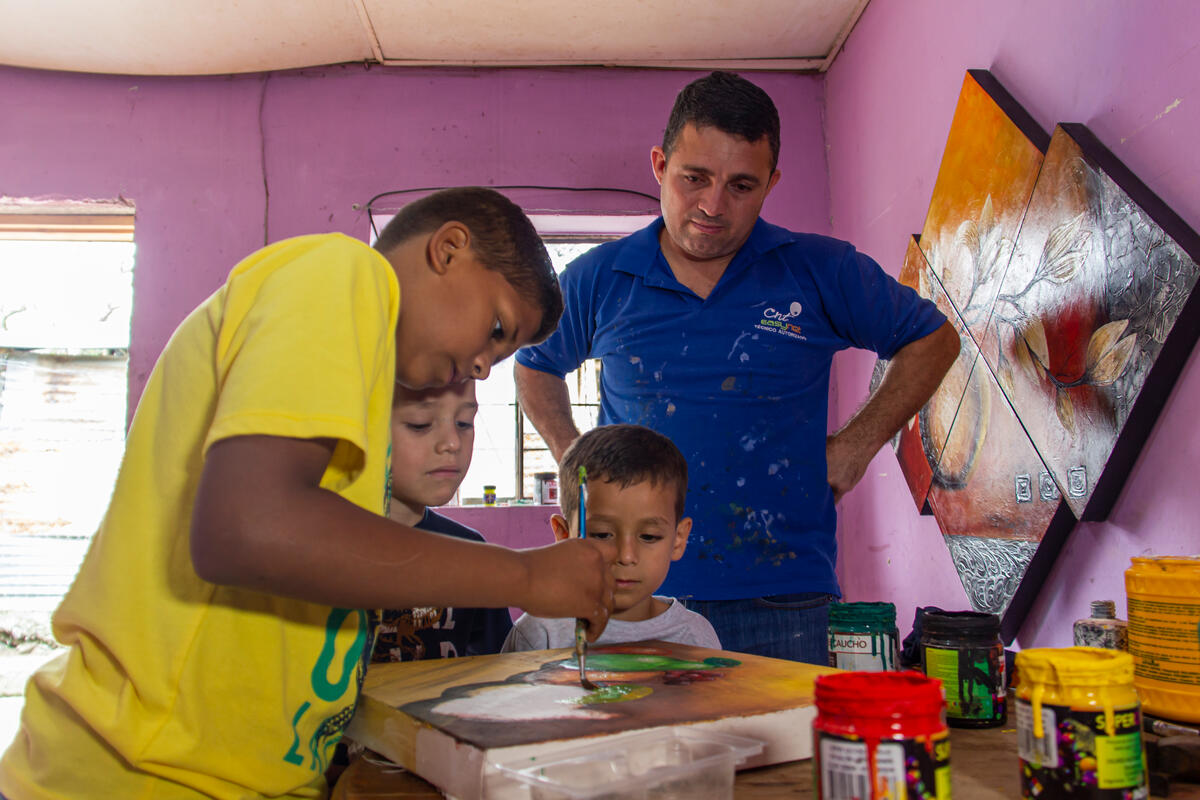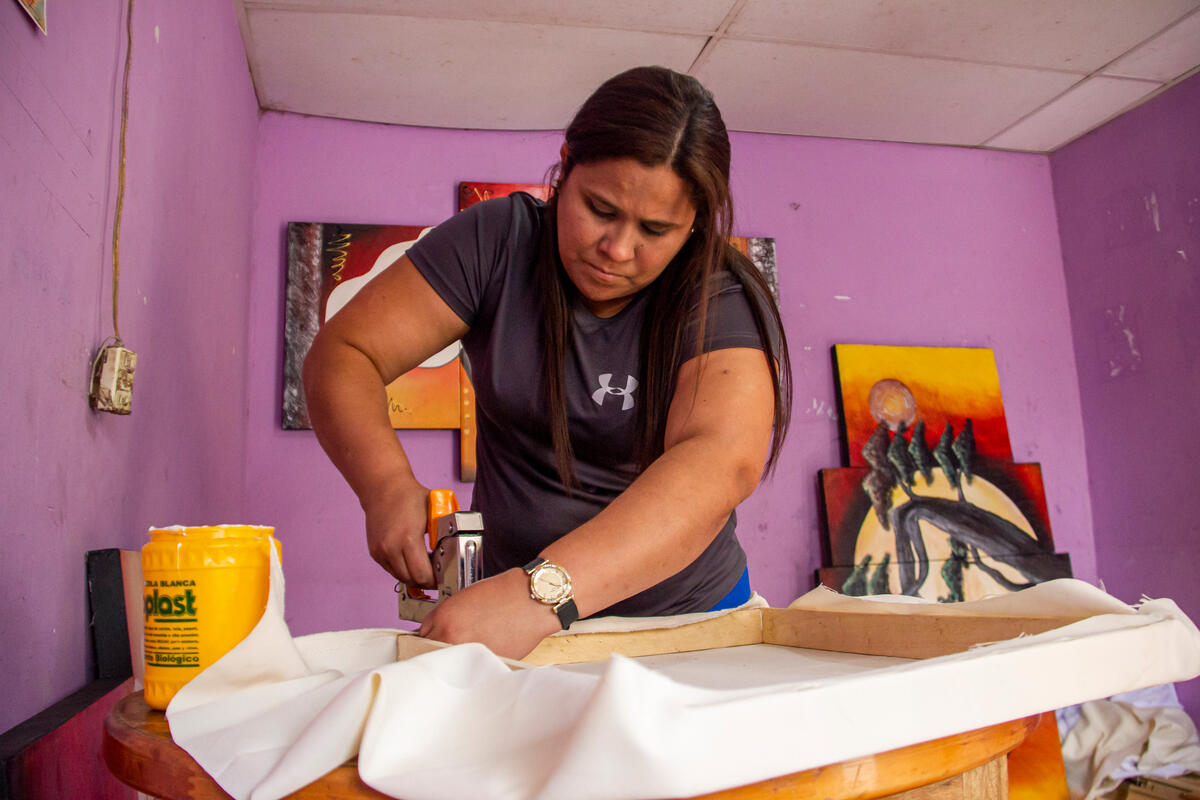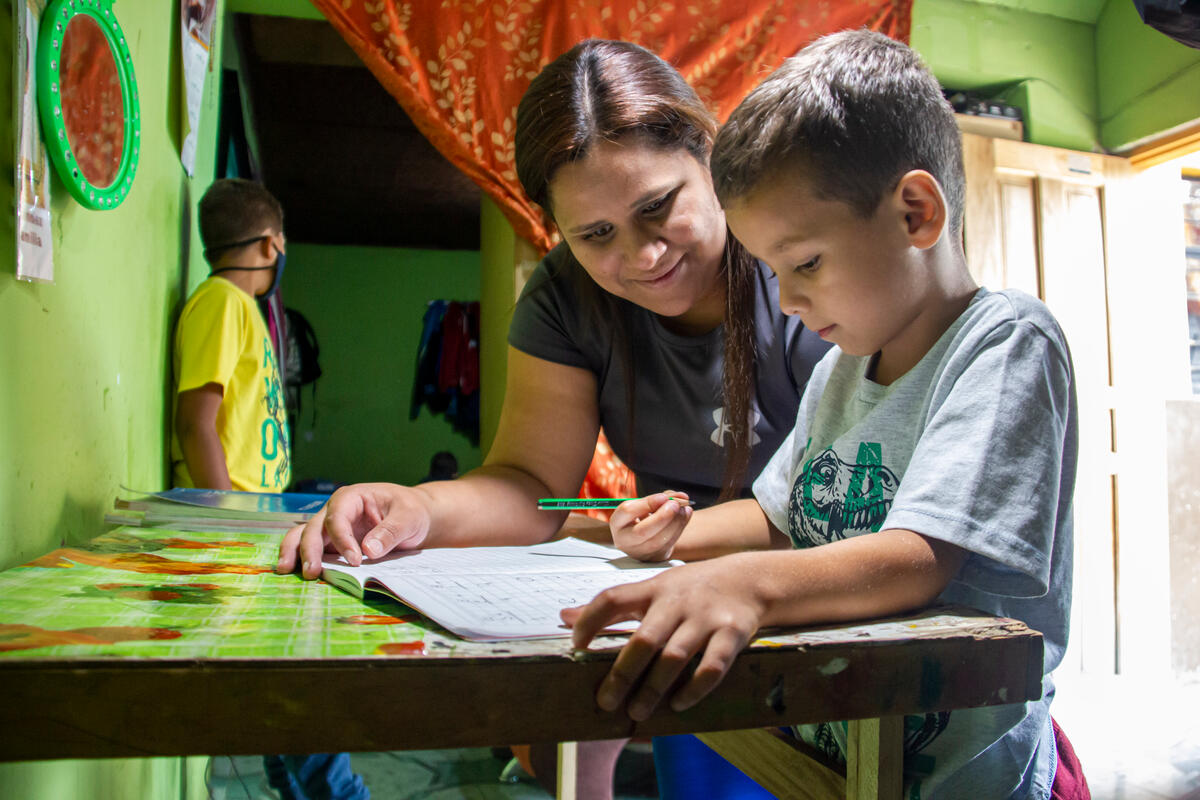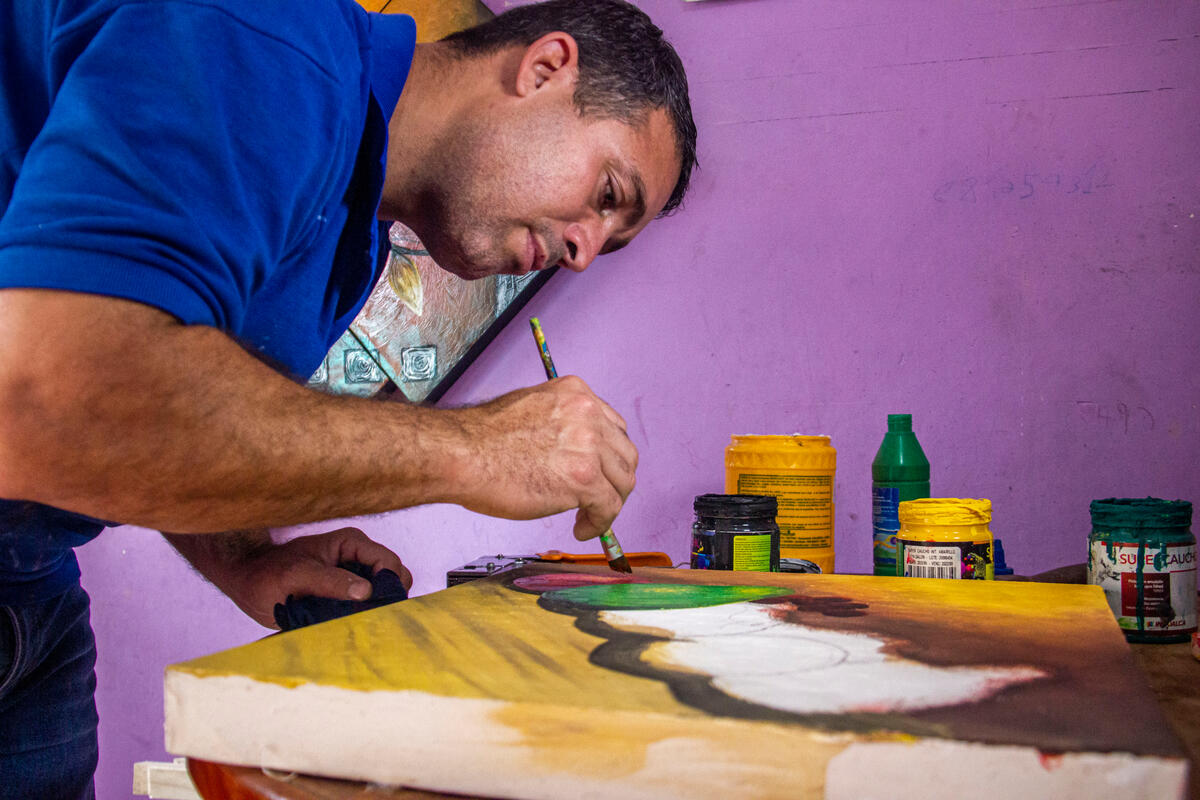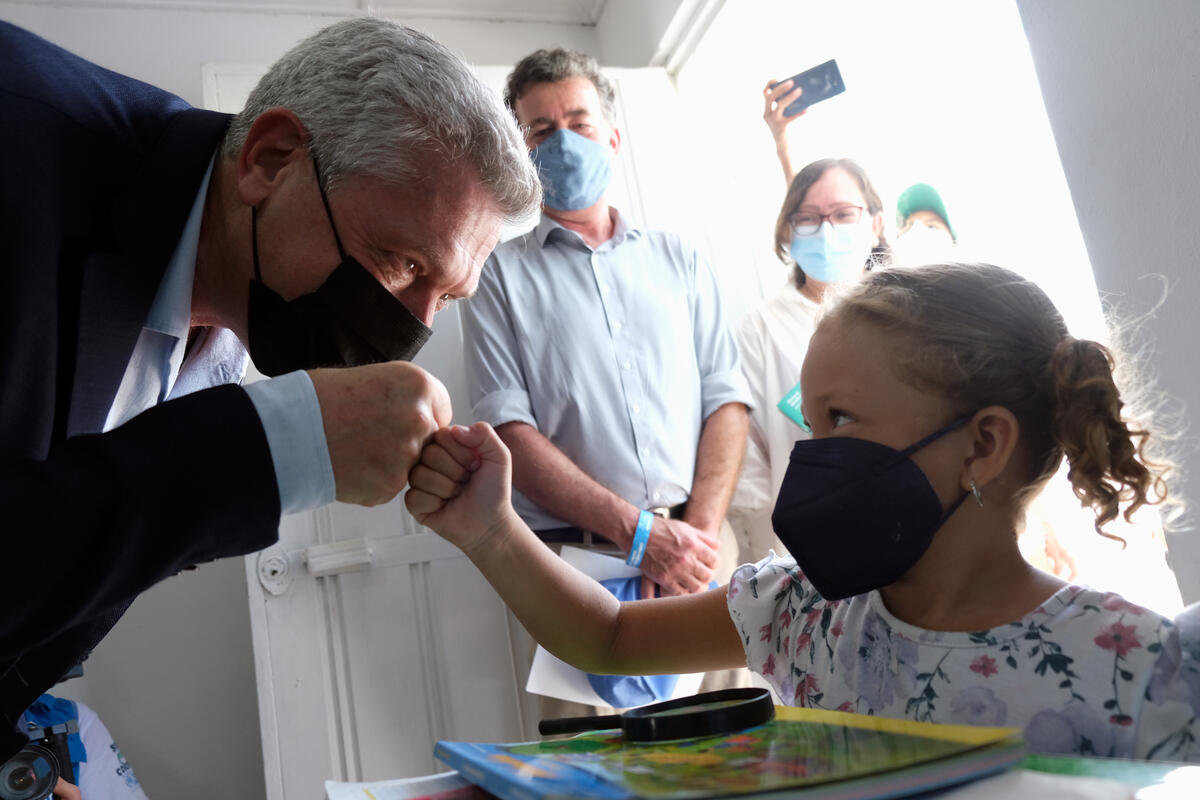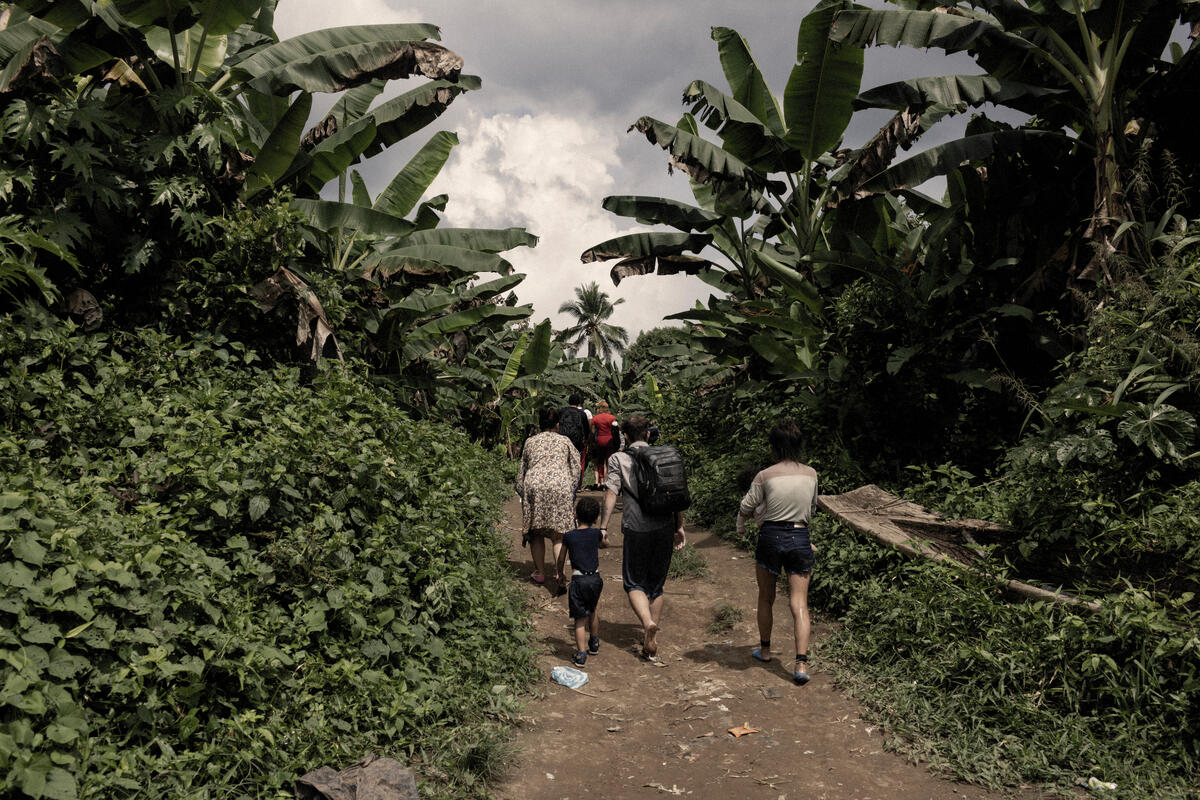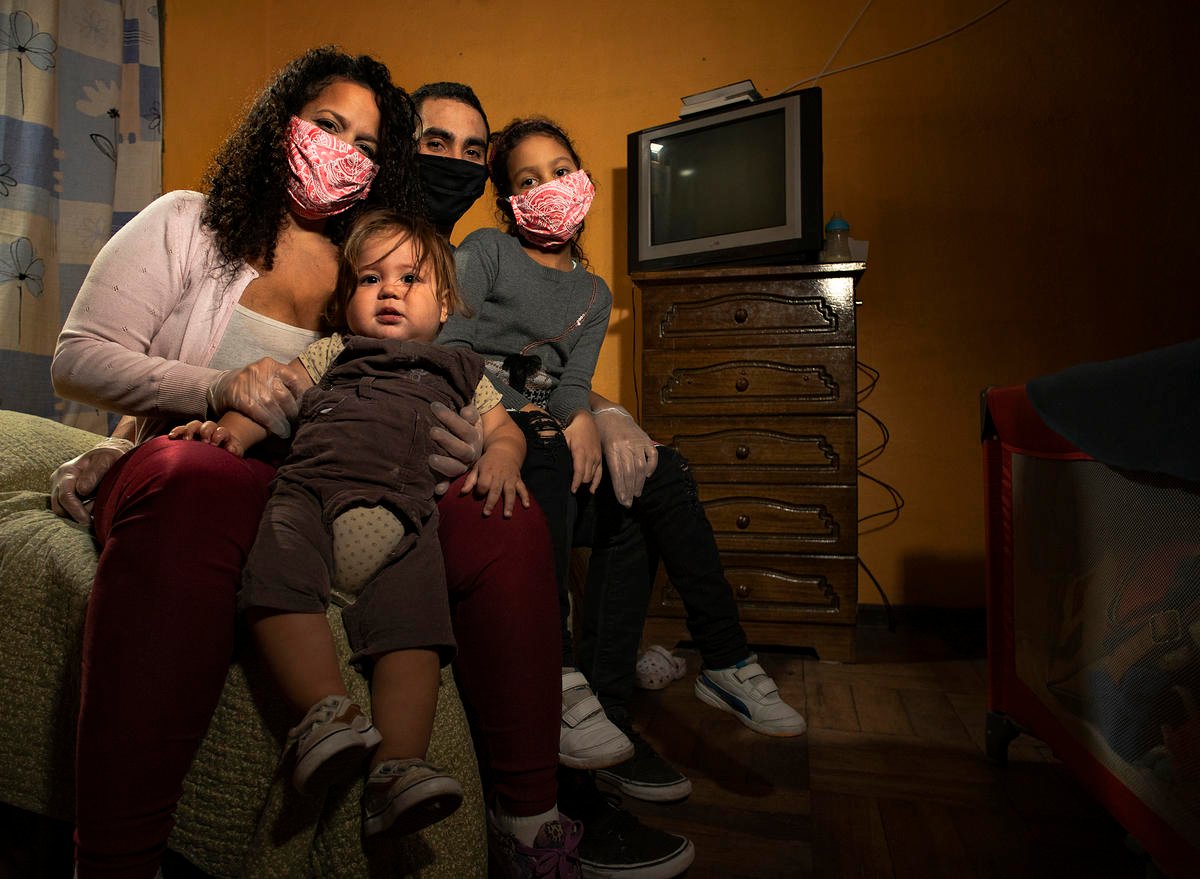For displaced Venezuelans, regularization is the key to building productive lives
For displaced Venezuelans, regularization is the key to building productive lives

In the little house where María Jose Mercado and José Soto live with their three kids in the Ecuadorian border town of Ibarra, the line between work and home life is a blurry one.
The Venezuelan couple, who left their country two years ago amid food and medicine shortages and a deepening political, economic and human rights crisis, have turned their rental into a workspace where mom, dad and sometimes even the kids play a part in earning the family’s living.
José, who worked as an artist back home, paints on the canvases that María José builds and stretches, while the couple’s kids, ages 11, 6, and 5, sometimes contribute a few brushstrokes. The family sells the finished products at local markets, but their irregular status has kept them from taking their business to the next level.
“Regularization is vital – it’s what we need to find stability and calm,” said María José, 28, adding that without it they are unable to obtain the tax number they would need to sell their paintings to shops. “It would also help my children. They’re in school, but they need to have an ID in order to get their diplomas.”
María José’s dreams of regularization are about to come true. Ecuador recently announced a plan to extend regular status to the nearly 50 per cent of the 430,000 Venezuelan refugees and migrants in the country who currently do not have it, according to an estimate by the interagency platform for Venezuelan refugees and migrants. The plan will not only remove practical barriers to access basic services like health care and education, which are already granted regardless of status, it will also remove barriers to entrepreneurship and provide a doorway to full inclusion.
In neighbouring Colombia, a recently-started similar process will give Temporary Protected Status (TPS) to many of the 1.7 million Venezuelans in the country.
"Without the proper documentation, we are rejected."
For Yohana Bracamonte, a 37-year-old mother of five who spirited her brood to the Colombian city of Barranquilla nearly five years ago, the TPS will mean her children, who have been out of school since they left Venezuela, will be able to get the education they need to make better futures for themselves. She also hopes it will bring her relief from chronic pain. Yohana suffers from ovarian cysts that require a surgery which, without proper documentation, she’s been unable to get.
“Regularizing our stay in Colombia is very important because we can hardly access anything without it…. medical attention, education, employment,” said Yohana, who, unable to work legally, makes ends meet by searching the trash for recyclables that she sells. “Without the proper documentation, we are rejected.”
During a recent trip to the region that included visits to Panama, Colombia and Ecuador, UN High Commissioner for Refugees Filippo Grandi praised efforts to regularize displaced Venezuelans, saying “despite the pandemic and many other challenges, we have seen positive steps toward inclusion and solutions.”
At an event in the Colombian capital, Bogotá, marking World Refugee Day on 20 June, Grandi described the government’s decision to implement the TPS as “visionary, an example of humanism and pragmatism.” Grandi also hailed similar efforts in Ecuador, Peru and the Dominican Republic.
“Through regularization, access to fundamental rights is guaranteed,” he said. “These various initiatives, which together could benefit up to 3 million Venezuelans, should serve as a model of solidarity and refugee inclusion on a global level.”
Grandi stressed that regularization brings benefits not only to displaced people themselves but also to the host communities where they seek safety.
“We bring our knowledge with us,” said María José, the Venezuelan mother in Ibarra, adding that back in Venezuela she worked as an elementary school teacher and “would like to give back” to her host community by working in her chosen field.
Her husband echoed her sentiments.
“We are bringing our knowledge to Ecuador and also learning new things from the country,” said José, whose painting business was given a boost by a programme implemented by UNHCR and its partner HIAS that provides would-be entrepreneurs with seed capital and business advice.
“If we are able to return to our country, Venezuela, we will take with us what we have learned here.”


